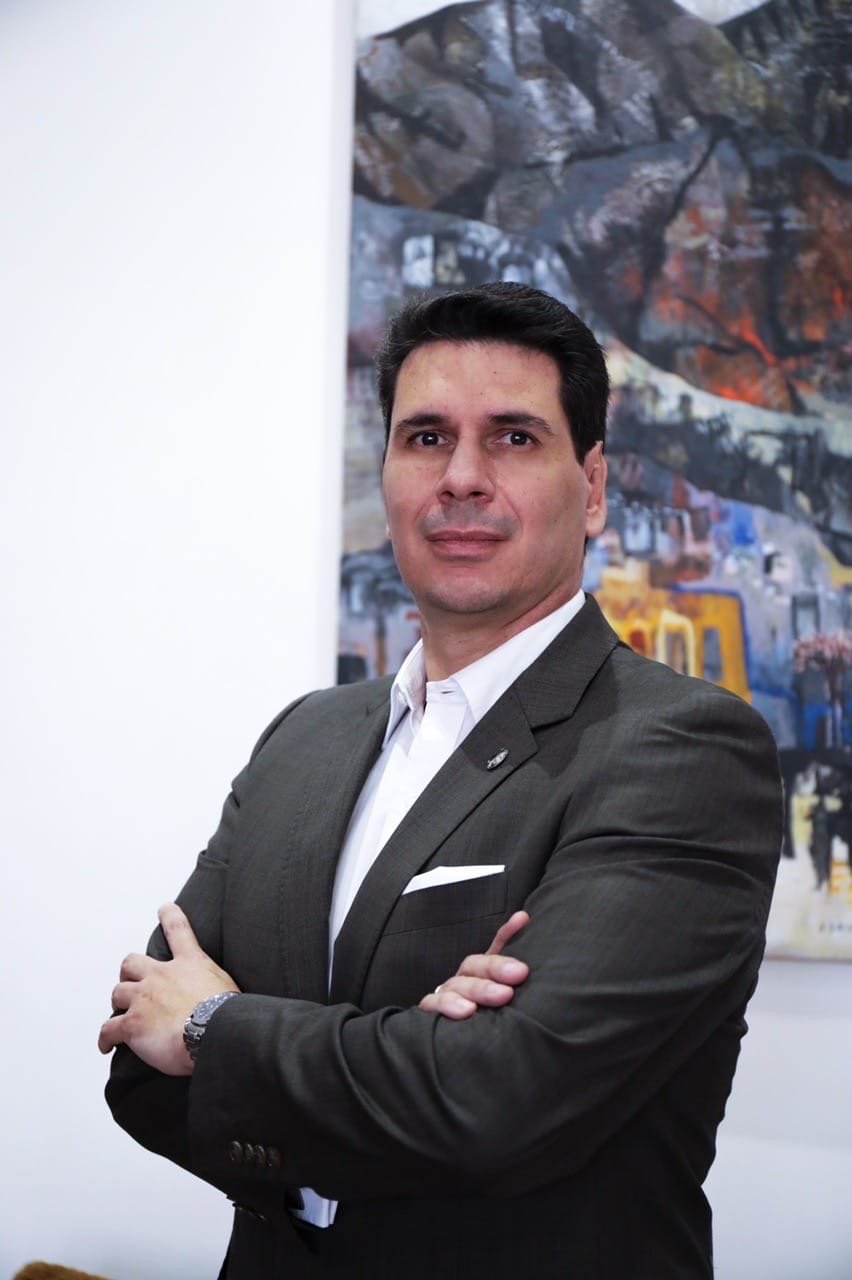Mayor of Cuenca Pedro Palacios Ullauri Named Co-Chair of the Climate Heritage Network
World’s leading alliance of arts, culture and heritage organisation continues work to leverage culture for climate action; expands efforts in Latin America and the Caribbean
Charenton-le-Pont, France, Wednesday, 22 July 2020 –– The Mayor of Cuenca, Ecuador Pedro Palacios Ullauri has been announced as a new Co-Chair of the Climate Heritage Network, the world’s leading alliance of arts, culture and heritage organisations for climate action, uniting a global coalition of 150 international, national and subnational networks, governments and organisations. Mayor Palacios’s appointment affirms the Climate Heritage Network’s commitment to strengthening its urgent work in Latin America and the Caribbean to mobilise arts, culture, and heritage to tackle the climate crisis.
The need for a carbon transition is immediate, and the costs of inaction could be devastating. Climate change is one of the fastest growing threats to people and their cultural heritage worldwide. May 2020 was the hottest May ever recorded on Earth. And in 2019, the global mean sea level reached its highest value since the beginning of modern records. These changes threaten irreversible harm to planet’s natural and human systems. The Climate Heritage Network connects thousands of cultural actors committed to tackling the causes and effects of climate change and using arts, culture, and heritage to support communities in achieving the decarbonization goals and other ambitions of the Paris Agreement.
“We in Cuenca know the tremendous power of culture to support sustainability and resilience,” said Pedro Palacios, Mayor of Cuenca and newly announced Climate Heritage Network Co-Chair for Latin America and the Caribbean. “I’m proud to join the leadership of the Climate Heritage Network, bringing the commitment of cities as cultural actors into our climate pact – together with government, civil society, cultural institutions, business and universities across Latin America and the Caribbean – to build on our experience and track record of supporting critical climate action needed for our people and planet.”
Mayor Pedro Palacios Ullauri
Cuenca’s leadership in the Climate Heritage Network is rooted in its internationally recognised culture and heritage. Cuenca was inscribed on the UNESCO World Heritage List in 1999 as a remarkable example of a planned city whose centre continues to observe the urban plan laid out when the city was founded in the 16th century. Cuenca’s impressive neoclassical architecture has been adapted through traditional craft from local materials such as stone, adobe, tapia, wood, and rattan. The intangible heritage of Cuenca is represented by the “El Pase del niño” celebration held every 24th of December to celebrate the birth of Christ. The celebration’s costumed parades showcase Cuenca’s artisanal traditions and also exemplify the role of cultural heritage in social cohesion and community solidarity.
Fiona Hyslop, Scotland’s Cabinet Secretary for Economy, Fair Work and Culture said: “The Climate Heritage Network has made a tremendous amount of progress since it was launched less than one year ago in Edinburgh – not just in building out the coalition, but in accelerating real solutions. Mayor Palacios comes from a city, like Edinburgh, of globally famous culture and heritage. I applaud the work that he and the other leaders and members of the Network are doing to bring arts, culture and heritage together to drive more ambitious climate action around the world.”
While arts, culture and heritage institutions are critical to their communities, they often are not directly engaged in climate action. Despite the profound cultural dimensions of climate change, today there are thousands of cultural actors and advocates whose talents have not yet been mobilised for climate action. The collective ambition of the Climate Heritage Network is to shift this paradigm and realise the immense and virtually untapped potential of arts, culture and heritage to drive climate action and support a just and equitable transition by communities towards low carbon, climate resilient futures.
“I am encouraged to see the Climate Heritage Network open the door for our cultural and arts community to take a leadership role in climate action,” said San Antonio Mayor Ron Nirenberg. “We share culture and heritage across the region, and it is appropriate for us to join to together to fight against the corrosive threat of climate change.” The City of San Antonio (USA) is one of the founding members of the Climate Heritage Network.
For more information, contact: Andrew Potts, Climate Heritage Network Secretariat, +1 202 215-0993 andrew.potts@icomos.org.
What is the Climate Heritage Network?
The Climate Heritage Network is a network of governments, cultural institutions, Indigenous Peoples’ organisations, NGOs, universities, and businesses committed to aiding their communities in using arts, culture and heritage to tackle climate change and achieve the ambitions of the Paris Agreement. Entities may join on the Climate Heritage Network website.


